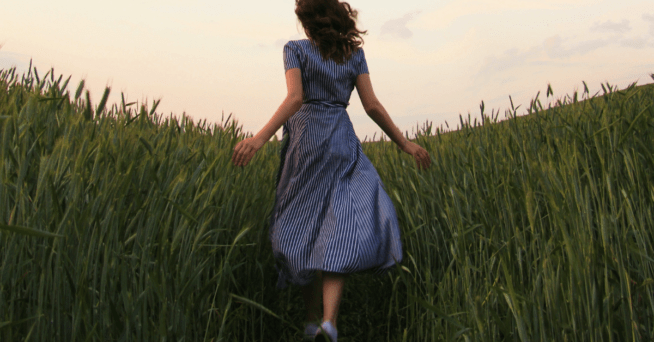Sometimes adversity is all too real.
Suddenly lost your job? That is really hard.
Just had a baby and learning to parent for the first time? Your life just changed.
Moved to a new country and feeling lost? That’s a tough adjustment.
The truth is, all of us will encounter struggle (in the non-ironic sense) at some point in our lives. There will be obstacles to overcome and battles to fight, both physically and emotionally. We will face challenges that severely test us, bring us to our knees, and leave us questioning whether we can handle it all.
Yes, life can be hard. But does that mean life has to be hard 24/7?
For decades, I thought it did. In fact, if there was a “Living in an Unnecessary State of Struggle” contest, I was a blue-ribbon winner. Multiple years in a row, thank you very much.
“Struggle” is often part of our origin story
I grew up in Toronto, Canada, raised by immigrant parents who did their best to create a life better than what they left behind. My father emigrated from Italy, worked as a draftsman, and eventually opened his own tile contracting business. My mother came over from England and worked as a part-time yoga instructor and retail salesperson.
They both made sacrifices and worked incredibly hard to make ends meet. When they bought their first tiny house, they rented out a bedroom to a student to help cover the mortgage. With just one bathroom and a new baby (my sister), they were definitely not living a life of luxury. But they were willing to do what they had to do.
Having lived through real hardship, it is not surprising that my father used to literally say, “Everything is a struggle.” Knowing that he came to Canada with nothing and seeing how hard he worked to build his business, I had every reason to believe him. Even though I had friends living more financially abundant and (seemingly) less stressful lives, in my world, you had to work hard all day long just to make ends meet.
I also believed struggle was just part of everyday living. No doubt that is because at home struggle reigned supreme with constant fighting and yelling. My parents never should have married and it took them thirty years to finally divorce. I would get physically sick from the stress, usually with severe migraines. I was so comfortable living in a state of chaos that I honestly couldn’t imagine life being anything else.
When “struggle” is seen as a normal part of life
We are instinctively comfortable with what we know. Therefore, it is no surprise that as an adult I began to recreate the struggle. I took jobs that didn’t pay well, let toxic people into my life, and worked like a complete maniac. At one point in my career I had a full-time job, taught three nights a week, and freelanced as a graphic designer for multiple demanding clients. Oh, and I was also running an Etsy shop just to keep things interesting.
The idea that I was addicted to struggle dawned on me during a women’s networking event. That evening, surrounded by a dozen savvy entrepreneurs, I expected to be inspired and uplifted. Instead, I felt deflated and to be honest, completely freaked out. Almost all of the women gushed (almost bragged!) about how hard life was and how they barely made any money. And I swear I heard one jewelry designer say exactly what my Dad used to, “Everything is a struggle.”
Whoa. The mirror was showing me the exact life I was leading—and the picture was not pretty.
After that event, I began to really question things. Did my life really have to be this exhausting? Did I need to work myself to the point of being rushed to the hospital in an ambulance because of an excruciating migraine? Could I be open to doing things differently?
Creating and committing to change
There were two things I had to discover before I could live a life with more ease and grace.
First, I had to realize that I was the one creating struggle where it wasn’t necessary. I was overbooking my calendar, saying “yes” to everything and everyone, and working myself to the bone. I was responsible for making things much harder than they had to be and recreating familiar childhood patterns that were toxic and disempowering.
Second, I could change things. I could choose to live my life differently. Too often we accept things the way they are, and don’t question whether things can change. Or, more alarmingly, we believe things can’t change no matter how hard we try. That is simply not true. Things can change if you are willing to let them and commit to the process, even when it’s extremely uncomfortable. And yup, it will be.
Today, my life is much different from those days of struggle, but it has taken many years to get here. Ironically, it was a struggle not to struggle. Breaking my old tried and true habits took a lot of education, personal development, and professional help.
Now, most of the time, I have real work/life balance. I feel physically strong and I have blank days in my calendar—and I make it a point not to fill them. When struggle does show up in my life, I see it as a sign that I’m out of alignment and I make it a priority to shift out of it—without judgment. And when the struggle is indeed real, I remind myself that it is sometimes inevitable and I am strong enough to handle it. And, without a doubt in my mind, you are too.

Alana Ruoso is a Career & Success Coach for those who know deep down that they can do better but keep falling short of where they want to go. With humor and honesty, Alana shows them how to ditch struggle, own their value, and move their career (and life) from vanilla success to spectacular triumph. Alana is a Certified Professional Coach, COR.E Dynamics Leadership Specialist and Energy Leadership Index Master Practitioner. Find her @alanaruoso and www.alanaruoso.com.
Image courtesy of Vladislav Murashko.












